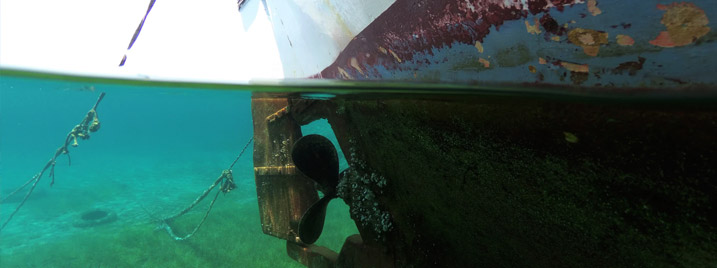
Buying any boat is a big decision and is probably the second biggest personal outlay you will ever make. It's a major decision, and bluntly, when buying a used boat YOU'RE ON YOUR OWN.
Remember: "Buyer Beware" "Caveat Emptor". The axiom or principle in commerce that the buyer alone is responsible for assessing the quality of a purchase before buying.
When buying a used boat there are no warranties or guarantees. How do you know...
- That the boat is even what the advert states?
- That the boat is fit for the purpose?
- That the boat is undamaged?
- That the boat is safe, sound or seaworthy?
- That the engines are serviceable?
- That the rig is safe?
- That the boat will provide good service without huge repair costs?
- That your investment is justified; are you paying too much, or too little?
If there are problems your only recourse is pursuit of the vendor through the courts; which can be along and costly procedure with unknown results.
Almost everyone you will deal with in choosing and selecting your boat will be working for the vendor. Brokers, advertisers, agents, agencies are all paid buy the vendor. If you use a broker make sure they are professional, use a recognized form of contract (for example RYA/BMIF/ABYA if in the UK) and that your deposit is secure and returnable. In the United Kingdom, look for membership of the ABYA (the Professional Association of Yacht Brokers) which ensures a high ethical standard and established code of practice, correct paperwork and indemnity insurance.
Who Can Help?
You need a Surveyor.
- Your surveyor is your professional.
- Your surveyor is on your side.
- Your surveyor works for you.
- Your surveyor cares about your boating safety.
- Your surveyor protects your investment and risk.
- Your surveyor enables you to make an informed decision.
You need a professional surveyor experienced in the type of boat you are considering.
A good surveyor will help and advise you on suitability and what to look for, he will play devils advocate in your decision purchase. He is your only guarantee and back up.
How do I find a good Surveyor?
Surveyors can be found in the advertising in the yachting press, at the professional association's web sites, broker's lists. Ask around in the yard, yacht club or marina for a personal recommendation.
Alarmingly there is no legislation, qualification or requisite standard to set up as a yacht surveyor. In the UK, look for a surveyor who is a member of an established and tangible, professional body such as the YDSA, Yacht Designers and Surveyors Association, or the IIMS, International Institute of Marine Surveyors (small craft section). This ensures that the surveyor is fully accredited, scrutinized, and follows a recognized code of practice.
Points to Check, and Questions to ask, when selecting a Surveyor.
- Membership of Professional Association.
- Qualification, Experience, or Accreditation.
- Level of Professional Indemnity. Cover for you.
- Third Party Insurance. Cover for the boat/vendor.
- Specialty and or Experience in the type of craft.
- Fees. Compare Quotes - beware too cheap.
- Does the surveyor offer formal terms of business and survey instruction form?
Ask for a sample survey; see what you might get for your money, and a reference from a previous client. The Surveyor should be flexible to suit your needs or any special requirements and should explain and discuss the types and benefits of different surveys. The surveyor should be receptive to your enquiries, positive, helpful, willing and enthusiastic never casual or dismissive. Remember he is working for you.
The Survey
If at all possible attend the survey, after all it's your survey. Ask questions and talk to your surveyor, but don't stop him doing his job. The surveyor should explain what he is looking at and why and what it means. This is invaluable when you need to understand and quantify a technical report.
After the Survey
Digest your report, make notes and discuss it with your surveyor. Ask questions. It is important to understand the findings and implications of the survey report and the advice of your surveyor. You will get more meaningful information from a frank discussion than a report. If you are satisfied that you can make an informed decision, renegotiate, buy the boat, or pull out.
Remember that your surveyor should still be available for help or advice on an ongoing basis.
Credit for this article goes to: Simon May, Boat Care Yacht Surveys www.boatcareyachtsurveys.co.uk